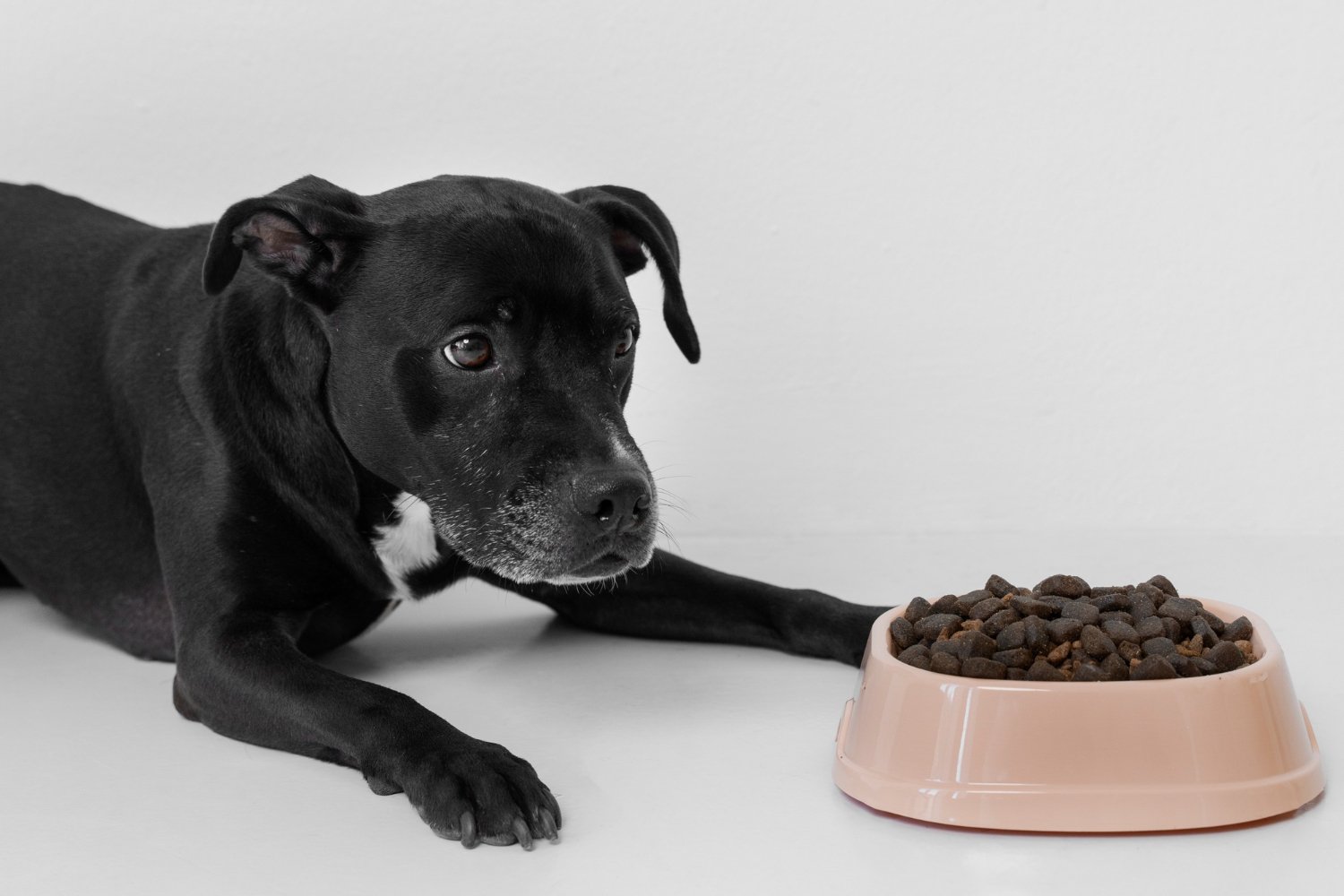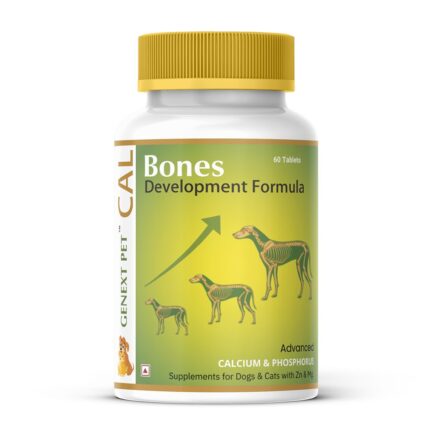How to Improve Your Pet’s Digestion Naturally: Essential Tips & Gut Health Solutions

Introduction: Why Digestive Health Matters for Pets
Your pet’s digestive system plays a crucial role in their overall health, affecting everything from nutrient absorption to immune function and energy levels. When digestion is compromised, pets can suffer from diarrhea, bloating, vomiting, or loss of appetite, which can lead to more serious health concerns over time.
While a balanced diet is the foundation of good digestion, natural support through probiotics, prebiotics, and gut-friendly nutrition can significantly improve your pet’s digestive health. In this guide, we’ll explore common digestive issues, natural solutions, and how supplements like Neobiotic DFM can help restore gut balance in dogs and cats.
1. Common Digestive Problems in Pets
Digestive discomfort can arise due to various factors, from dietary choices to underlying health conditions. Here are some of the most frequent digestive issues pet owners face:
Diarrhea & Loose Stools
- Caused by sudden diet changes, bacterial infections, food intolerances, or parasites.
- Can lead to dehydration and nutrient loss if left untreated.
Gas & Bloating
- Often due to poor digestion, food allergies, or swallowing air while eating too quickly.
- Excessive bloating may indicate gut imbalance or digestive enzyme deficiency.
Vomiting & Acid Reflux
- Commonly triggered by overeating, eating too fast, or consuming spoiled food.
- Persistent vomiting may signal gastritis, pancreatitis, or food sensitivities.
Constipation & Hard Stools
- Occurs when pets lack fiber, water, or proper gut motility.
- Can lead to discomfort and straining during bowel movements.
When to See a Vet:
If your pet experiences chronic digestive issues, blood in stool, or prolonged vomiting, consult a veterinarian immediately.
2. Natural Ways to Improve Your Pet’s Digestion
1. Feed a Balanced, High-Quality Diet
- Choose pet food with high-quality proteins (chicken, fish, lamb) instead of fillers like corn or soy.
- Ensure adequate fiber from sources like pumpkin, sweet potatoes, and leafy greens.
- Avoid table scraps, artificial preservatives, and high-fat foods that can upset the stomach.
2. Ensure Proper Hydration
- Water aids digestion by breaking down food and preventing constipation.
- Encourage your pet to drink more by placing multiple water bowls around your home.
3. Maintain a Consistent Feeding Routine
- Feed smaller, frequent meals instead of one large meal to reduce bloating and gas.
- Avoid giving new foods suddenly—introduce changes gradually over 7–10 days.
4. Support Gut Health with Probiotics & Prebiotics
- Probiotics introduce good bacteria that aid digestion and prevent diarrhea.
- Prebiotics act as food for probiotics, ensuring a balanced gut microbiome.
Best Sources of Probiotics & Prebiotics:
- Plain yogurt & kefir (ensure they are pet-safe with no added sugar).
- Fermented vegetables like sauerkraut (small amounts only).
- Probiotic supplements designed specifically for pets.
3. The Role of Supplements in Digestive Health
While food plays a critical role in gut health, some pets need additional support to maintain optimal digestion. Supplements can help restore gut balance, improve nutrient absorption, and reduce digestive discomfort.
Neobiotic DFM: A Science-Backed Solution for Gut Health
Neobiotic DFM is a veterinary-formulated probiotic and prebiotic supplement designed to:
- Restore gut balance by replenishing beneficial bacteria.
- Relieve diarrhea, gas, and bloating for improved digestion.
- Support immune function—80% of immunity starts in the gut!
- Aid recovery after antibiotics or stomach infections.
Key Ingredients & Benefits:
✔ Lactobacillus acidophilus – A probiotic strain that aids digestion and prevents stomach upset.
✔ Saccharomyces boulardii – Helps combat diarrhea and restore gut flora balance.
✔ Fructooligosaccharides (FOS) – A prebiotic that feeds good bacteria and improves digestion.
✔ Beta-glucans – Enhance immune system response and reduce inflammation in the gut.
How to Use:
- Mix recommended dosage with your pet’s food.
- Use daily for long-term digestive health and stronger immunity.
[Shop Neobiotic DFM – Advanced Gut Health Formula]
4. Additional Tips for a Healthy Digestive System
Avoid Overfeeding & Table Scraps
- Overeating can slow digestion and lead to obesity.
- Human food, like onions, chocolate, and dairy, can be toxic for pets.
Regular Exercise Aids Digestion
- Daily walks help stimulate gut motility, preventing constipation and bloating.
- Playtime and mental stimulation reduce stress-related digestive issues.
Reduce Stress & Anxiety
- Stress impacts digestion—ensure a calm feeding environment for your pet.
- If your pet suffers from anxiety, consider behavioral training or calming supplements.
Final Thoughts: Keep Your Pet’s Digestion Happy & Healthy
Maintaining good digestion is key to your pet’s overall well-being, energy, and immunity. Whether your pet suffers from an upset stomach or you simply want to boost their gut health, a combination of healthy food, hydration, and probiotics can make a world of difference.
– Want to give your pet the best digestive support?
Explore Genext Pet’s vet-formulated probiotic supplements for happier, healthier pets!
[Shop Neobiotic DFM – Gut Health Solution]
FAQs About Pet Digestive Health
How do I know if my pet has a sensitive stomach?
If your pet frequently experiences diarrhea, vomiting, or inconsistent stools, they may have a sensitive digestive system.
Can puppies and kittens take probiotics?
Yes! Probiotics are safe for young pets and can help strengthen their developing digestive system.
How long does it take for digestive supplements to work?
Most pets show improvements within 5-7 days, but long-term benefits are seen with consistent use.
About Author
Dr. Kevin Modi
Dr. Kevin Modi is a trusted voice in the Indian pet care space, with years of hands-on experience in pet wellness, gut health, and natural supplements. At GenextPet, he guides product formulation and ensures content accuracy, drawing from real-world insights and the latest research. His goal? To simplify pet health for every dog and cat parent.

